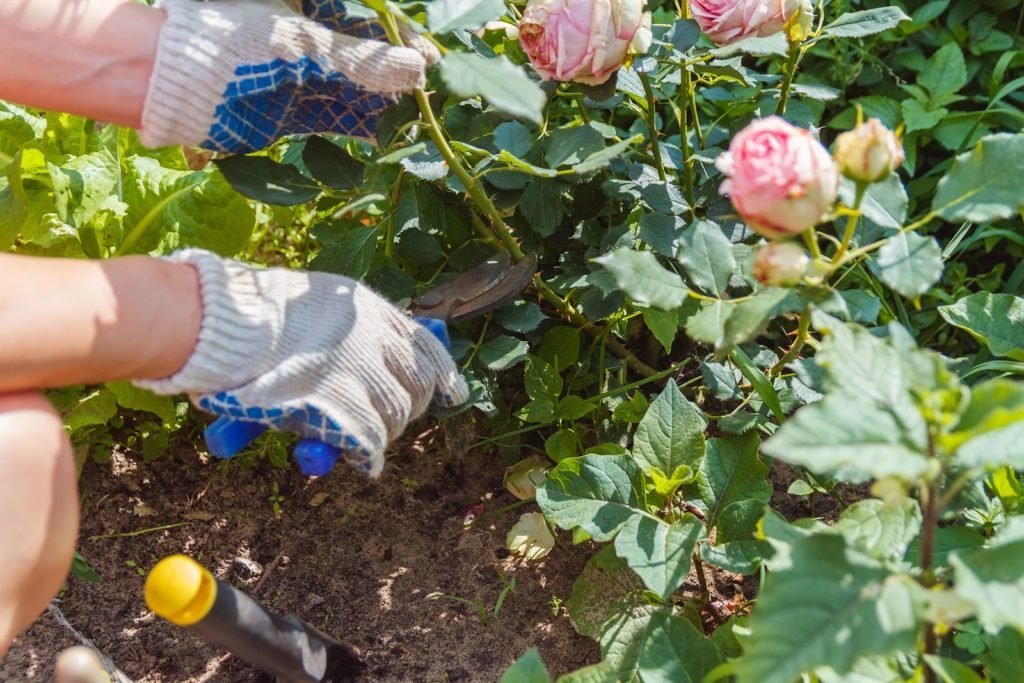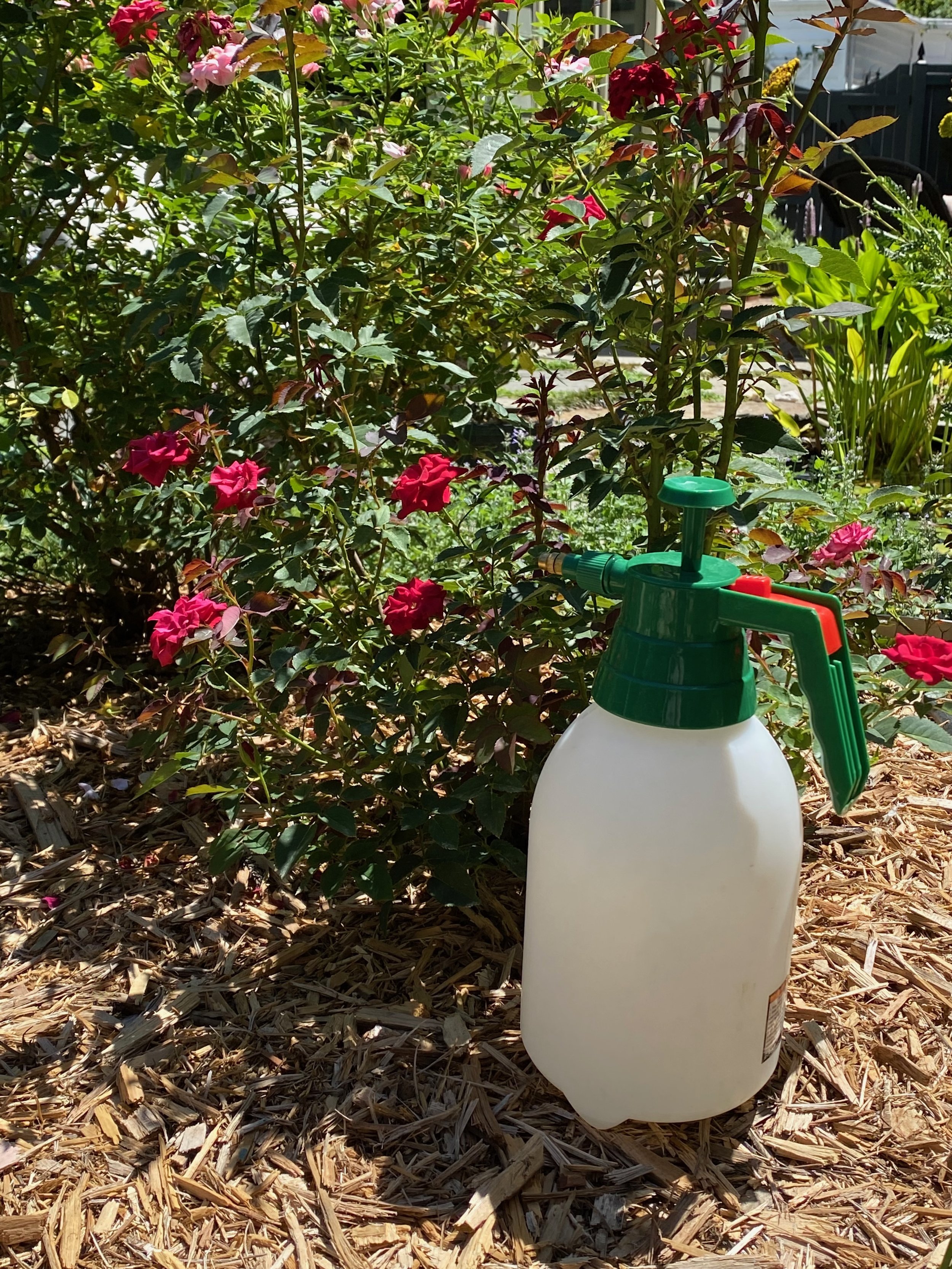Summer Care
Your roses are planted and they have had a beautiful first flush. Now the what? During the hot days of summer there are some steps that we should take to keep our roses happy. Watering, mulching, deadheading, feeding, insect monitoring and disease control.
Water…water…water. It’s a proven fact that water is the most important consideration when it comes to growing outstanding roses. Each garden has different needs based on soil conditions, weather and drainage. It is very important to never let the rose dry out. Note that roses have two kinds of roots; anchor roots that secure the rose and feeder roots that are close to the surface. These little mesh-like feeder roots can dry out quickly.
Mulching will help to prevent the roots from drying, especially the feeder roots. Add 2-3 inches of mulch to the soil to moderate the soil temperature, reduce evaporation and reduce weeds. Remove weeds first, then carefully spread an even layer of mulch over the soil surface, keeping it a few inches away from the base of the plant.
Deadheading is essential for many roses. This pruning technique will help them stay in bloom, look tidy and prevent disease. Deadheading increases the number of flowers your rose produces each season. By deadheading roses instead of allowing them to form seed hips, you are signaling the plant to produce more flowers. It's also a way to continually prune and shape the plant.
While most rose gardeners fertilize in the spring when growth begins, midsummer feeding sometimes gets overlooked. Roses are heavy feeders - it takes a lot of energy to produce all those large, magnificent blooms! Continue to feed your roses monthly with 1/2 cup of organic fertilizer such as Rose-tone, Plant-tone, Purely Organic or Mills Magic. In late August give your roses 1/2 cup of 7-20-20 or any fertilizer high in phosphorus and potassium. The high phosphorus (middle number) and potassium (last number) will stimulate root growth and promote winter hardiness.
When fertilizing, be sure to spread the fertilizer evenly out to the drip line of the rose bush and then scratch it in the soil. Also, very importantly, never apply chemical fertilizers to dry soil. Always water before and after application.
Stop fertilizing after the late August feeding to allow the plants to gradually prepare themselves for winter.
Summer pest can play havoc on your beautiful roses. Early detection and prevention keep these problems under control. The most common summer pest are spider mites, thrips and Japanese beetles. An initial control for spider mites is a wash the underside of the leaves with a jet of water from the garden hose. You may need to do this a couple of times to assure they do not return. Japanese beetles can be controlled by picking them off or by a spray. Thrips are more difficult to control and will require a watchful eye and a chemical spray.
In our area blackspot is the disease that most often attacks our roses. Blackspot occurs during humid or rainy weather or where watering (especially overhead) is excessive. Be sure to spray regularly for blackspot and rotate fungicides to assure the there is not a resistance build up.



